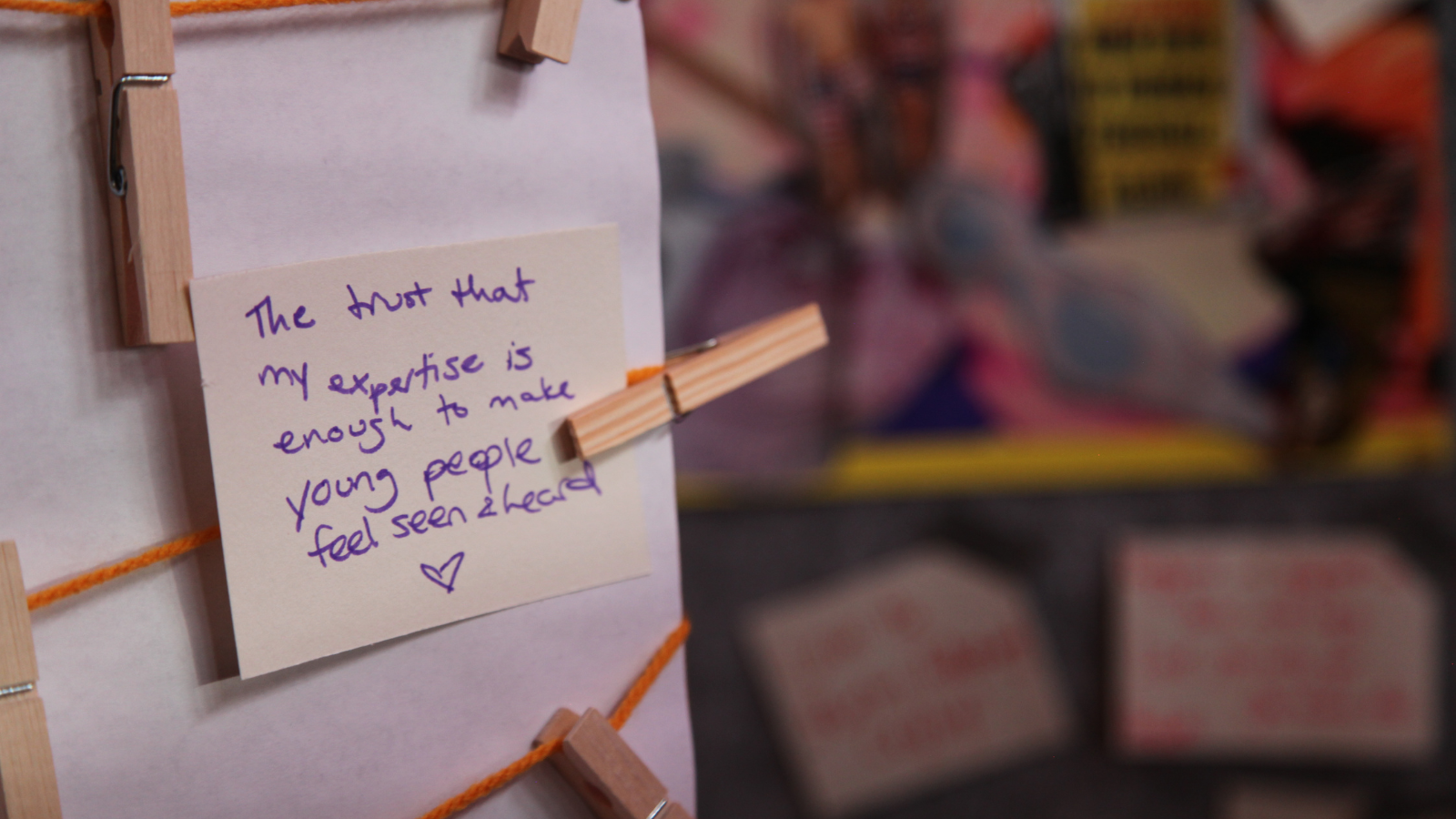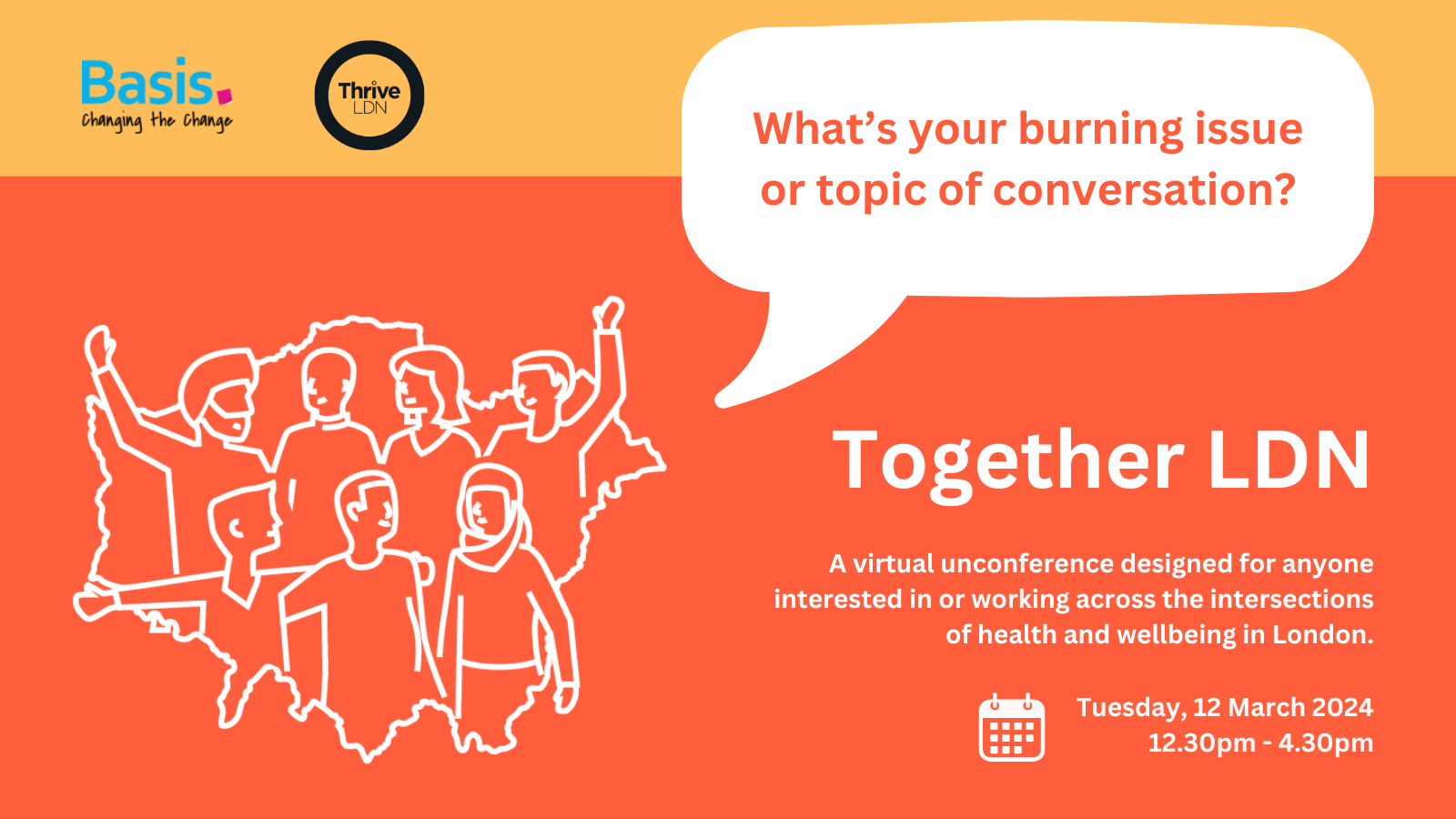
Equality, Diversity, and Inclusion
All Thrive LDN’s activities have been informed by Equality Impact Assessments (EIA).
All Thrive LDN’s activities have been informed by Equality Impact Assessments (EIA).

Beyond a one size fits all approach
London is a global city where people from different countries, cultures and classes live together, side-by-side.
We are privileged to be part of one of the most diverse, multicultural, and energetic cities in the world.
Whilst this is one of London’s greatest assets, it is also the reason why a one size fits all approach cannot work for protecting and promoting the mental health and wellbeing of over 9 million people.
Check and Challenge
Since its inception, all Thrive LDN’s activities have been informed by Equality Impact Assessments (EIA).
In previous years, we have utilised the assessment tools of partners. However, more recently, we have gone one stage further and developed an Equity, Diversity, and Inclusion (EDI) Framework for Thrive LDN, along with an accompanying EIA template.
Through the development of an EDI Framework, Thrive LDN and its partners are optimally placed to empower those affected by health inequities to influence change through participation. The framework has been designed from a complex system perspective, as action on equity, equality, diversity, and inclusion is a pre-condition, outcome and long-term goal for public mental health in London. The principles are interlinked across Thrive LDN’s Theory of Change.
The EIA supports the requirements of the Equality Act 2010 Public Sector Equality Duty, the Advancing Mental Health Equalities Strategic approach, and the Patient and Carer Race Equality Framework (PCREF) and supports any aspirations to exceed these.
Our Check and Challenge sessions are chaired by Dr Jacqui Dyer MBE, mental health equalities advisor for NHS England and co-lead of Thrive LDN, with the aim of to addressing health inequities concerning a programme, project or activity using an EIA.
The sessions are supporting the delivery of more accessible, inclusive, and responsive activities to Londoners and their communities, including those from racialised and minoritised groups. The EDI process continues to be an iterative learning process for the team, facilitated in a safe space.
The EDI framework and approach has also this year supported the work we do with:
- Supporting Thrive LDN’s partners, such as London’s Integrated Care Systems and local organisations, to understand how they can build equality and equity into their strategic and operational processes and practices.
- Supporting coalition building with community and voluntary organisations to reflects the diversity of London.
- Utilising the above approach to bring equity to organisational processes and practices that seek to improve the mental health and wellbeing of London’s diverse population.
- Supporting organisations to become inclusive employers.
- Enabling partners to informally self-assess their progress on the equality improvement journey and determine where and how they need to improve.
We know from the evidence base that participatory approaches can directly address the marginalisation and powerlessness caused by entrenched health inequalities. To ensure that those most marginalised and vulnerable in society are self-empowered to actively participate and shape public mental health, and collectively address the entrenched health inequalities and inequities that contribute to poor mental health outcomes, we developed a Thrive LDN Remuneration Statement.
This statement has been produced to acknowledge that all contributions to Thrive LDN’s work are of equal value and importance in the production of Public Mental Health knowledge, resources, and interventions. Thrive LDN is driven and determined around encouraging a cultural shift where there exists no hierarchy in terms of knowledge, and expertise.
The following principles have been developed to guide our approach to remuneration and provide an opportunity to challenge and re-evaluate existing assumptions:
- Seek to remove barriers to participation and encourage a wide range of community members to participate, including through reimbursing expenses and appropriately compensating for time.
- Be transparent about what will be reimbursed and when compensation will be offered from the onset of recruiting participants.
- Actively seek out a diversity of partners by working to make arrangements that support people’s involvement.
- Recognise and show our appreciation for contributions made by participants not only through reimbursement and compensation, but through treating people respectfully, listening to their views, saying ‘thank you’ and feeding back on the impact of their participation.
- Work with partners to ensure that remuneration is covered in a way that is fair and feasible, and offering participants best value for money.
We will continue to review our approach to remuneration to improve the process as Thrive LDN expands partnerships, projects, and programmes.


